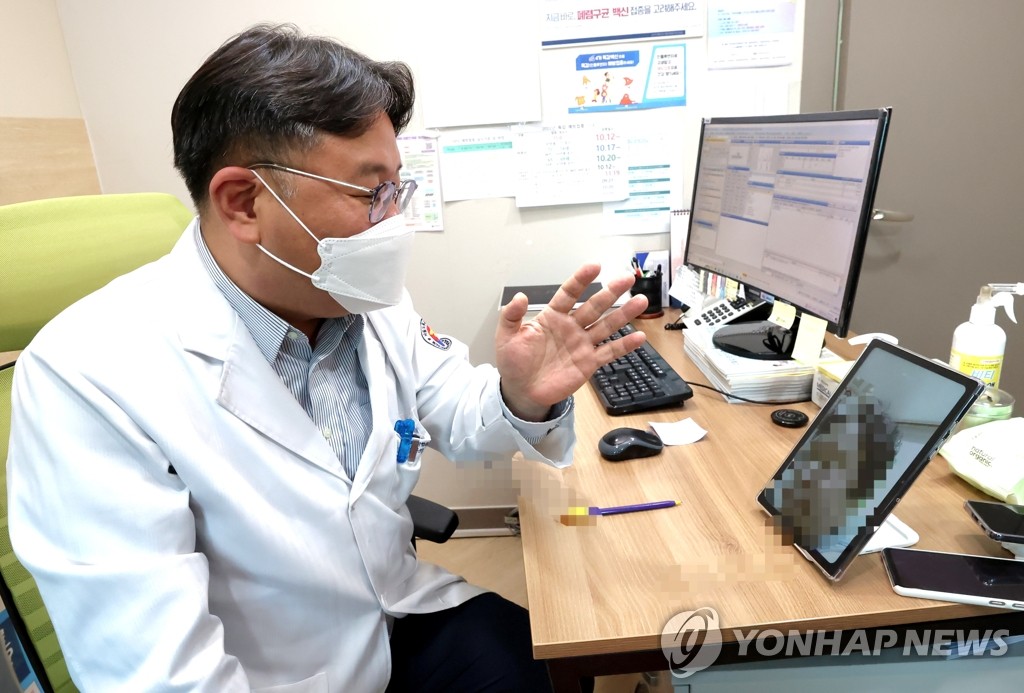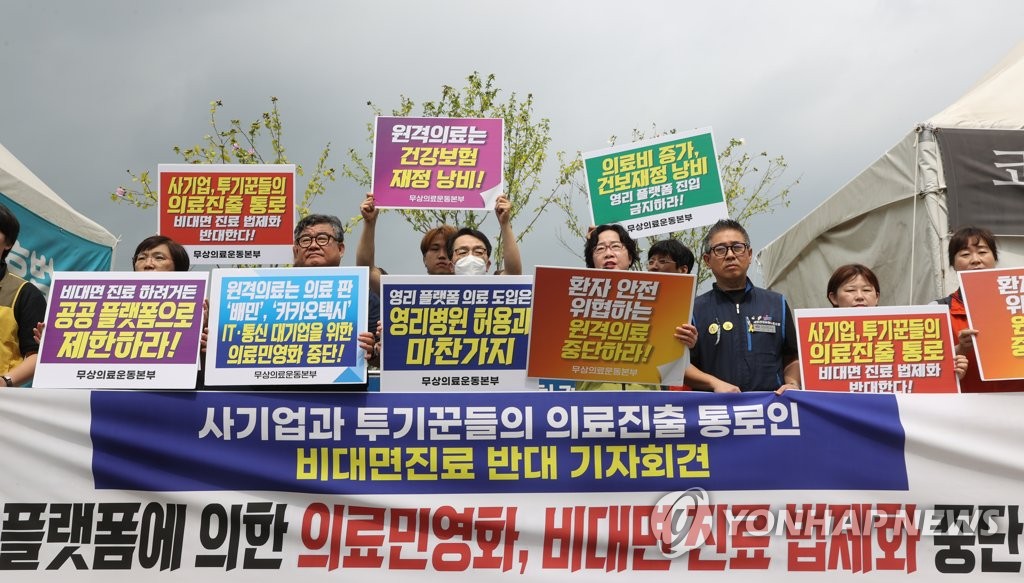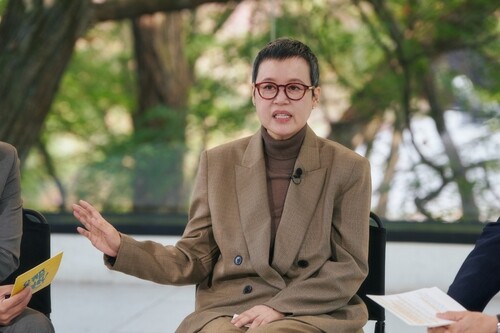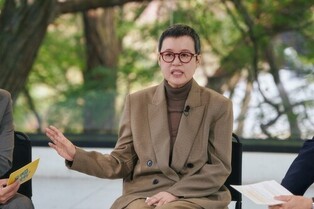 |
| ▲ This file photo taken May 30, 2023, and provided by the Ministry of Health and Welfare shows the non-face-to-face treatment process at a hospital in Dobong Ward, northern Seoul. (PHOTO NOT FOR SALE) (Yonhap) |
 |
| ▲ This file photo taken Aug. 22, 2023, shows Park Min-sook (5th from right), vice chairperson of the Korean Health and Medical Workers' Union, and others protesting against the legislation of non-face-to-face medical treatment in front of the National Assembly in Yeouido, Seoul. (Yonhap) |
telemedicine services-expansion
Telemedicine services to be expanded for patients in remote areas
SEOUL, Dec. 1 (Yonhap) -- The government plans to allow telemedicine services for first-time patients in remote areas at night and on holidays, as part of its efforts to address gaps in medical care services with urban areas, officials said Friday.
South Korea's telemedicine services have been temporarily allowed since 2020 in the wake of the COVID-19 pandemic.
So far, they have been available only for first-time patients residing on islands, as well as mountainous and isolated areas. But starting Dec. 15, such treatment will be allowed in 98 additional cities, counties and districts, the Ministry of Health and Welfare said in a statement.
The 98 subjected areas account for 39 percent of the country's 250 cities, counties and districts.
First-time patients in all age groups will be able to receive telemedicine services, including counseling services and prescriptions, after 6 p.m. during the week and holidays, the statement said.
Until now, first-time patients aged under 18 have received only non-contact counseling services during the nighttime and holidays, and have not been able to receive prescriptions.
In other efforts to enhance medical services for the general public, the government will also allow returning patients to receive non-contact treatment regardless of their illnesses if they have any previous medical treatment records in the same hospitals in the previous six months, the ministry said.
Currently, non-contact treatment is available for returning patients with chronic diseases, such as diabetes and hyperpiesia, if they have treatment records for the same diseases in the same clinics in the previous 12 months.
As for returning patients with other diseases, they have to have treatment records for the same diseases in the same hospitals in the previous 30 days.
Morning-after pills are prohibited from the prescription list based on non-face-to-face treatment due to possible side effects.
(END)
(C) Yonhap News Agency. All Rights Reserved























![[가요소식] 조항조, 새 싱글](/news/data/20251116/yna1065624915927473_582_h2.jpg)










